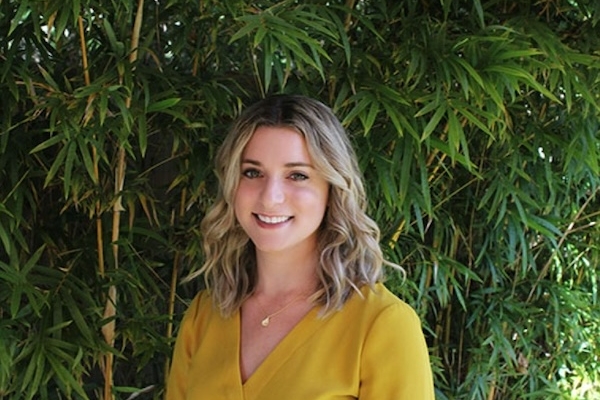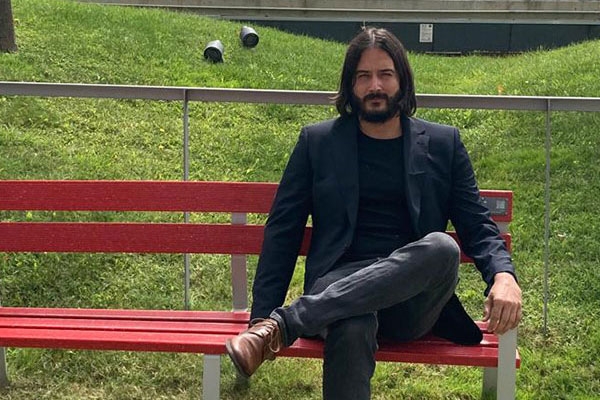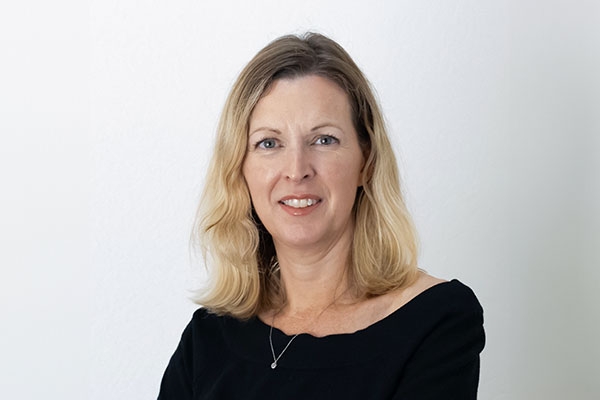Discipline. Loyalty. Service. Duty. Respect. These are the traits that drew Isaac Stuart to enlist in the U.S. Army after earning a B.S. in managerial economics—with an emphasis on finance—from UC Davis. A career trajectory into a 9-to-5 finance job seemed like the right next step, but Isaac was not ready to fall into what he calls a mundane schedule and decided to take a road less traveled.
“Instead of falling into a work routine that I didn’t think I was going to enjoy,” Isaac tells me over Zoom, “I decided to enlist in the Army—a four-year adventure—and see what it would have in store for me. I wanted to develop myself into a leader while experiencing more of what this world has to offer.”
While Isaac may not have made the immediate transition from “cap and gown” to the traditional workforce, he did parlay his finance knowledge by enlisting in the Army as a financial management technician. He leveraged his undergraduate degree and became an essential asset during his deployment to Afghanistan and special operation’s mission to Okinawa, Japan. Isaac was able to gain invaluable leadership experience while performing accounting and budgeting responsibilities for Army Special Forces missions.
“The first two years of service flew by,” Isaac describes. “I quickly realized that civilian life was right around the corner. I wondered what I could do to give myself an edge as I transitioned.”
I was really interested in learning the hard skills the business analysis program was teaching and combining them with the soft skills the Army was teaching.
Drawn to Berkeley Quality
That edge turned out to be gaining new skills in business analysis. This direction complemented his current work in the Army but with a twist: Our certificate program not only taught him the fundamentals, but also provided an organized, holistic overview of the processes that he was already trying to improve. “The certificate helped me create effective change by utilizing change management techniques, organizing tasks in a linear path—from start to finish,” Isaac adds.
“I was really interested in learning the hard skills the business analysis program was teaching and combining them with the soft skills the Army was teaching—when used together, they are so applicable—not only for work, but also for life in general.”
Future of Work Podcast: Season 1, Episode 5: The Hybrid Role—Fusing Technical and Soft Skills, Part 1
But where to get this desired knowledge?
Having been born and raised in the Bay Area, Isaac hoped to attend UC Berkeley—both for his undergrad and potentially to pursue a master’s degree. But when a Berkeley master’s degree wasn’t within reach after his deployment, Isaac remained undeterred in getting a UC Berkeley education.
“I chose UC Berkeley Extension to get a taste of what it would be like to take classes at UC Berkeley,” Isaac affirms. “UC Berkeley is an awesome institution and having a certificate from UC Berkeley Extension is an accomplishment.”
We couldn’t agree more! So when you began taking classes, were you able to apply lessons learned to those processes you were hoping to improve?
I learned a lot about process improvement and was able to translate that knowledge into action within my special operations finance office. The office was very unorganized in its structure; there were loosely assigned tasks and responsibilities. The team was rarely on the same page and had a lack of cohesion with the monthly business rhythm. Although work would get done, it was inefficient and teamwork was not utilized to accomplish it. The process improvement aspect of it was most applicable to me.
The skills I gained allowed me to create tangible change and got me promoted to a special operation’s missions in Okinawa, Japan. The mission required me to turn around a fraudulent and noncompliant Defense Travel System. I ended up restructuring the entire finance office—including the soldiers operating within it—and created a culture change within the Special Forces battalion that emphasized integrity.
I wouldn't have been able to do that as efficiently if I wasn’t studying business analysis with UC Berkeley Extension: It’s one thing to be a subject matter expert who can not only do the tasks and responsibilities, but it’s another to do that and make the office flow the way it's intended to.
UC Berkeley is an awesome institution and having a certificate from UC Berkeley Extension is an accomplishment.
Being overseas, you obviously took all of the classes online. How was that experience for you?
There was definitely an effort to incorporate a sense of community. It was nice hearing about other people's experiences and how my classmates were incorporating business analysis skills into their respective fields.
My instructors were helpful and responsive. They were there to help you out.
I was also on such weird timelines being in the Army. My instructors were super-flexible in terms of when I could get my assignments turned in and respond to posts. If I was on a mission for two weeks and couldn’t get any work done, they would let me turn everything in when I got back. Everyone was really understanding, and I appreciated that.
That’s a new type of work-life-study balance! How did you handle your commitments?
With discipline.
Once my job was done during the day, I would focus and make my studies a priority at night. It wasn't difficult for me to spend my night after work studying. I set my mind to accomplishing this goal and I intended to see it through.
I really took the skills the Army was teaching me and worked to apply it to all aspects of my life. I wanted to prove to myself that I could achieve more and perform to a higher standard. I got good grades in all my business analysis courses and it taught me that hard work outperforms talent a lot of the time.
The business analysis certificate certainly sparked my enjoyment in education, something that was missing in my undergraduate years.
And after you completed the certificate and were discharged from the Army, you didn’t stop your education.
Completing the business analysis certificate made me a competitive applicant to University of San Francisco’s master’s in financial analysis program. I was able to show the admissions team that I was continuing to pursue my education and achieve higher education milestones. It also reflected a higher GPA, which took some weight off a seemingly lower undergraduate GPA.
I finished the 18-month program with a 3.6 GPA, which was a huge accomplishment for me. It taught me many hard skills that are needed to work in numerous finance careers.
Since completing the program, I still have more education milestones that I am looking toward. I am studying for the GMAT to go back to school and earn an M.B.A. I would like to eventually take the Chartered Financial Analyst® (CFA®) tests in the coming years. I'm in a role right now where being a CFA is not applicable, but I think it’s a challenging test that I would be proud to complete.
The business analysis certificate certainly sparked my enjoyment in education, something that was missing in my undergraduate years.
Tell me about the work that you're doing now.
I work for Lockheed Martin Space in financial management. I financially manage multi-million-dollar NASA Space Engineering projects while simultaneously implementing earned-value management techniques and ensuring the program is running compliantly. I primarily focus on a program called MUSE, or Multi-slit Solar Explorer, which is going to launch in 2026.
The mission will help scientists understand the forces driving the heating of the Sun’s corona by observing its extreme ultraviolet radiation and capturing the highest-resolution images over this region.
I sometimes simplify my job description to, “I appropriately allocate every penny that NASA gives us” because I often feel like a Swiss Army Knife™ most of the time. The role is very fitting given the mission-planning experience that I gained in the Army. I am very fortunate to have as much responsibility and oversight as I do, but I believe the degrees and certificate I obtained provided reassurance and confidence that I was capable of handling the role.
While I enjoy what I do, my goal is to eventually move to an investment analyst position at Lockheed Martin Ventures.
My dream job is to get into investment management, venture capital and private equity. I have a fascination with the stock market and its history, and while I am not actively involved with it in my career, I do study and practice it in my personal life outside of work.
Most of my best work opportunities presented themselves during my educational programs, not after I completed them.
What does earning the certificate mean to you both personally and professionally?
Personally, I think it was a huge confidence boost.
The certificate is a great stepping stone for either a career pivot or for personal use. Professionally, the Army loves to see people actively investing in their professional development, so it was all the more reason to pursue it.
What advice would you give to someone who's just starting this certificate on how to best succeed?
Make sure you know why you're doing the certificate and how you’re going to apply it when you complete it—whether in the present or in the near future. If you're actively working, make sure that your leadership is made aware of it so they can support you and acknowledge the extra effort you’re putting in—it goes a long way and what they don’t know can’t help you.
Most of my best work opportunities presented themselves during my educational programs, not after I completed them.



